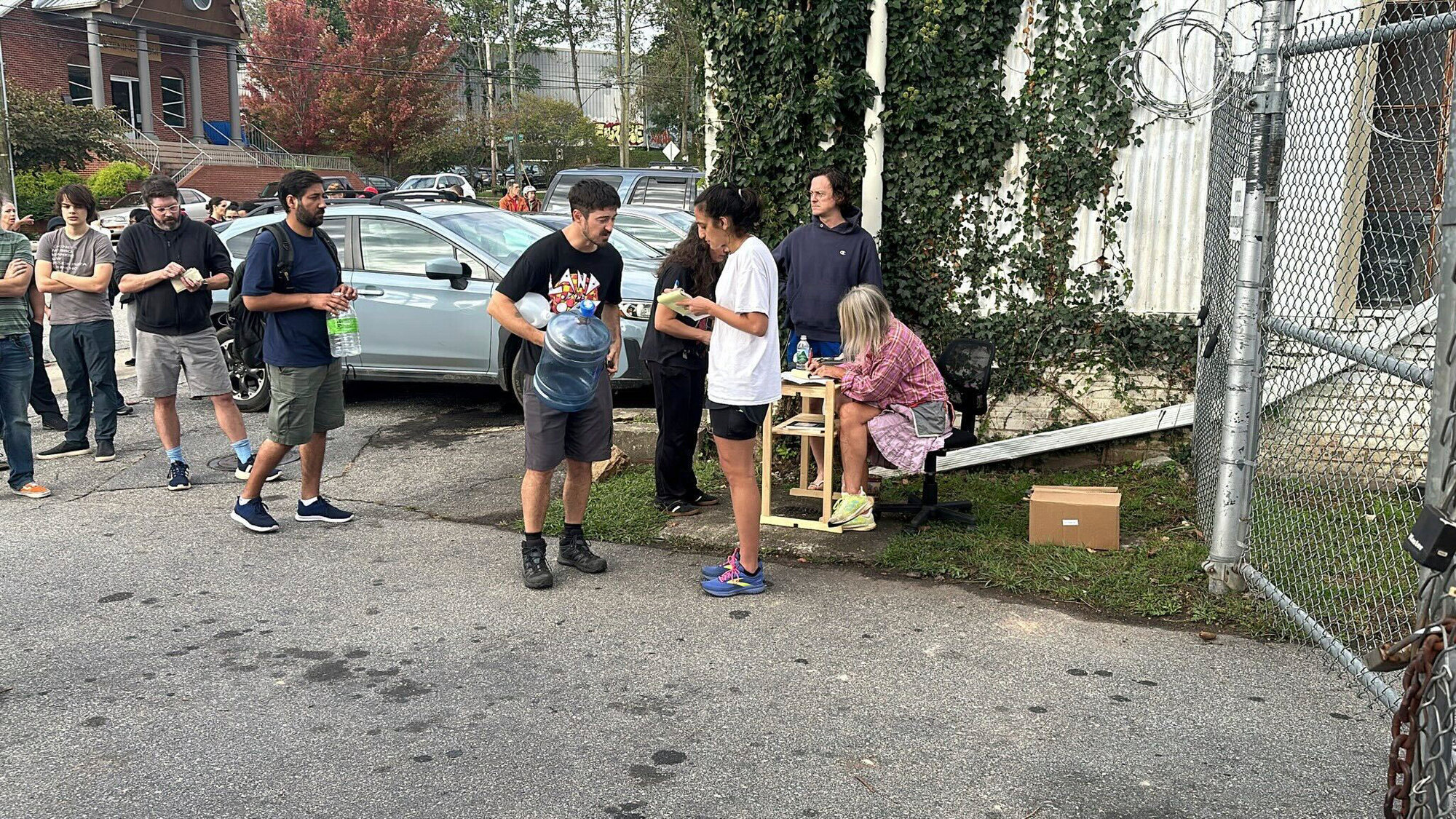Vetted national organizations are taking donations for Helene help
Rescue efforts and money donated to recovery is a vital part of any disaster relief, but making sure survivors and those responding to help have food to eat is where World Central Kitchen comes in.
WCK is "first to the frontlines, providing meals in response to humanitarian, climate and community crises," its website says.
Chef José Andrés started WCK in 2010 after going to the aftermath of an earthquake in Haiti. He learned that not only is providing food a necessity to everyday survival, but he became more fully aware of the idea that a thoughtful, freshly prepared meal is not just "one less thing someone has to worry about in the wake of a disaster, it is a reminder that you are not alone, someone is thinking about you, and someone cares. Food has the power to be the nourishment and hope we need to pick ourselves back up in the darkest times."
His teams are in Georgia, Florida, Tennessee and North Carolina. Andrés is in Asheville, North Carolina. They are able to bring supplies to prepare and distribute meals, as well as water tanks, to isolated areas that have not been reopened via road via a fleet of helicopters.
WCK doesn't just bring food to impacted communities, but deployed teams partner with local restaurants to help them support their own neighbors.
"It's the people of those communities coming together and us simply empowering them to bring to the citizens what they need," Andrés said from Asheville in an interview with CNN that is posted to WCK's website.
To donate to WCK, go to https://wck.org/. The homepage has information about their efforts in response to Helene and how to donate.
- Kayla Green
While some flooding, lots of trees and power lines and other impacts were felt in Sumter from Hurricane Helene, many may have their thoughts on the Upstate, communities closer to Columbia and those from central Florida to east Tennessee that are still in rescue efforts.
Helene made landfall Thursday, Sept. 26, in Florida's Big Bend region as a Category 4 with winds of 140 mph.
After inundating a wide swath of Gulf coastal Florida with storm surge and destructive winds, Helene did not lose momentum as fast as other recent storms, moving quickly north to bring wind and rain, causing catastrophic flash flooding inland as far and wide as central and Upstate South Carolina, central and north Georgia, western North Carolina and eastern and north Tennessee. Population-dense, river-based cities as big and popular as Greenville, Atlanta, Asheville and Pigeon Forge had no time to plan as rivers and creeks overflowed and dams broke.
With recovery ongoing, many may be wondering how those outside of Helene's path can help. From local, grassroots efforts to federally organized missions, here are some vetted national options.
OFFICIAL ORGANIZATIONS RESPONDING
It's important to go through official channels to volunteer time, money or supplies in the aftermath of a natural disaster. Clogging roadways that may be damaged or needed for emergency vehicles and showing up to affected areas may only cause more chaos.
FEMA's nonprofit partners include the American Red Cross, the Salvation Army, Convoy of Hope and Heart to Heart International, among others, that are supporting survivors by providing emergency shelter, food, water, cleanup kits, health care supplies and other disaster relief items.
The Red Cross has nearly 900 responders deployed, according to FEMA. As of Saturday, there were at least 1,900 people in more than 80 shelters. Opportunities to help include financial donations, blood donations and volunteering. Go to https://www.redcross.org.
The Salvation Army is providing meals at six emergency shelters in Georgia. In Florida, five mobile feeding units are in Tallahassee, and 12 are in Perry. The organization is also providing cleanup kits and blankets and is providing meal services to North Carolina, South Carolina, Tennessee and Kentucky. Opportunities to help include financial donations and contributing needed items. Go to www.salvationarmyusa.org.
Convoy of Hope is in Perry to distribute disaster supplies to survivors and partnering with the Taylor County Sheriff's Office. Opportunities to help include financial donations. Go to https://convoyofhope.org.
Heart to Heart International is in Florida with hygiene kits and pharmaceuticals/health care supplies for survivors. Opportunities to help include financial donations. Go to www.hearttoheart.org.
Food for the Poor is delivering pallets of hygiene kits to Catholic Charities in St. Pete and Tampa, Florida, and deploying disaster kits that include tarps and hygiene kits, women's care kits and children's activity kits. Opportunities to help include financial donations and volunteering. Go to https://foodforthepoor.org.
NATIONAL VOLUNTARY ORGANIZATIONS ACTIVE IN DISASTER
VOAD is a coalition of the major national voluntary organizations in the U.S. that has made disaster-related work a priority.
National VOAD members and partners will serve these communities as long as necessary. There is no request for donations outside of cash. VOAD organizations ask that you do not send unsolicited donated goods, and please do not self-deploy.
- Alabama - Alabama VOAD (www.alvoad.org)
- Florida - FLVOAD (www.wpengine.com)
- Georgia - Georgia VOAD (www.gavoad.org)
- Kentucky - Kentucky Voluntary Organizations Active in Disaster (www.kentuckyvoad.org)
- North Carolina - North Carolina Voluntary Organizations Active in Disaster (www.ncvoad.org)
- South Carolina - www.SCemd.org/recover/volunteer-and-donate/
- Tennessee - Tennessee VOAD (www.tnvoad.org)
TEXT, DON'T CALL
If you are trying to reach someone who was in the area of impact, text rather than try to call. Calling can clog phone lines, while texting leaves lines open for emergencies.
More Articles to Read

